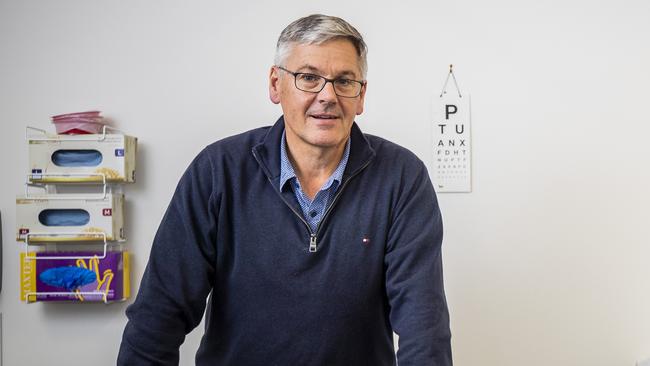VAD struggling as Tasmanian GPs steer clear
Tasmania‘s voluntary assisted dying system is struggling due to a lack of GP involvement, amid ‘mystifying’ secrecy surrounding take-up data.

Tasmania’s voluntary assisted dying system is struggling due to a lack of GP involvement, amid “mystifying” secrecy surrounding take-up data.
Almost four months after the state’s VAD laws started operation, supporters of the long-awaited reform say it is being stymied by a lack of GPs training to participate in the scheme.
The Royal Australian College of General Practitioners on Wednesday estimated only “a handful” of GPs had trained so far.
Tasmania has one of the nation’s worst GP shortages and RACGP Tasmania chair Tim Jackson said most doctors, even if open to VAD, had not prioritised the 10 hours of training required for involvement.
“My understanding is that the uptake has been slow,” Dr Jackson said. “There’s a lot of competing things for our time and I think what we’re finding is that GPs probably haven’t prioritised doing the training and putting their hand up for VAD.”
More GPs may undertake the training through the course of the year, as it had been accredited by professional bodies to count towards minimum annual professional development points.
However, Dr Jackson warned dedicated funding for GPs to assist with VAD would be required longer-term, with existing Medicare rebates not reflecting the amount of work involved.
“There needs to be some other mechanism to make it sustainable, other than Medicare, which isn’t fit for purpose,” he said.
“It’s all time based, so if you spend an hour with a patient talking about (VAD), as far as Medicare is concerned you’d be better off financially seeing four other patients for 15 minutes.
“That’s going to be a long-term disincentive. If a GP was going to … do quite a bit of this (VAD approval), it would be difficult financially to sustain it.”
Tasmania’s Health Department refused to provide basic, de-identified data it holds on the number of patients who have been assisted to die under the End-of-Life Choices (Voluntary Assisted Dying) Act, which began operation in full in late October last year. It is also refused to say how many doctors had trained and registered.
Dying with Dignity state president Hilda Nilsson said those seeking VAD were struggling to find a doctor in their area trained and registered to assist. “Ideally, we would have a lot more doctors do the training,” she said.
She was “at a loss to explain” why the Health Department refused to release basic data.
Upper house independent MP and architect of the legislation Mike Gaffney said he understood at least six people had ended their lives under the laws.




To join the conversation, please log in. Don't have an account? Register
Join the conversation, you are commenting as Logout